Can Education Save the Economy?
The recent global economic downturn is causing U.S. workers and employers to look to the educational system for skills that will allow them to thrive when the economy recovers. The Community College Research Center's (CCRC) mission is to conduct research on major issues affecting community colleges in the United States and to contribute to the development of practice and policy that expands access to higher education and promotes success for all students.
A boom in demand for education typically occurs in downturns, and this one is no exception, although the magnitude of the downturn is greater than has been experienced in many years. Workers are being dislocated from industries that often won't return, and need to retrain.
However, education alone cannot save the economy. Much larger forces are at work, such as international equity and debt markets, the banking crisis, and the deflation of consumer confidence. The Obama administration, in concert with other governments, is taking a many-faceted approach to attacking the economic crisis, including an economic stimulus unprecedented in its scale, reduction of interest rates, and bailouts of large institutions. It is also taking a longer-term approach, attempting to decrease national energy and health-care costs, and placing a new emphasis on education.
U.S. policymakers are focusing on education because a modern economy cannot function without an educated workforce. Increased attention is being given to the over 1,000 community colleges in the United States that enroll almost 12 million credit and non-credit students, and 44% of all undergraduates. Community colleges typically offer programmes of up to two years, including many types of vocational and technical programmes. Unlike many four-year institutions, these colleges are typically open-access and much lower-cost. Thus, community colleges have been for some time now trying to cope with the large influx of dislocated workers.
Community Colleges, Economic Development, and Job Training
The current economic crisis highlights an increased need for community colleges to perform careful ongoing market analysis to determine local demand for labour, particularly skilled labour. They need to align their efforts with economic development efforts. It is difficult to predict demand, which means that community colleges need to operate with a continual “ear to the ground” to detect changes in labour market demand.
There continues to be high demand for mid-level skill jobs. If the labour market is divided, roughly, into three parts; low-skill, middle-skill, and high-skill; which correspond, again roughly, to educational levels of high school or less, some college or vocational training, and four-year college, the mid-skill segment continues to be the largest of the three, at about half (Holzer and Lerman, 2009). Community colleges play the major role in training workers for these jobs.
The challenges for community colleges are greatest in areas with dramatic changes in the industrial composition, such as in the so-called “rust belt” of the industrial Midwest, where old jobs are gone and are probably not coming back after the downturn. The challenges are also particularly difficult in high-unemployment states, like California. In these parts of the country, community colleges need to have an even greater link with economic development efforts.
These economic development and concomitant training efforts need to be focused on those areas of the economy in which there is likely to be growth in the future, for example, in health, in education, in construction, and in “green jobs,” which are jobs linked to safeguarding the environment.. Health care, in particular, is expected to grow rapidly because of the aging of the “baby-boom” generation. These are the areas that have been targeted by the federal stimulus package, so there is a synergy here between the strengths of community college programmes and the goals of the package. Federal job training monies can also be accessed by workers attending community colleges, with a special focus on workers adversely affected by international trade. Community colleges also play a role in training workers in information technology; demand for such workers will likely be robust when the recovery hits.
Community colleges will continue to play a prominent role in training first-responders and protective-service workers. While some politicians spend much time bemoaning the growth of government, the public has been continually increasing its demand for government services. Community colleges play a major role in training police, firefighters, emergency medical technicians, and paramedics in many jurisdictions. Many health care workers work for government agencies, and community colleges train many of them as well. Thus, this will be a source of opportunities for dislocated workers, especially as the recovery gets underway.
“Green” Jobs
The new emphasis on the green economy and green jobs could have a “win-win” effect of both improving the economy by making it more efficient, and providing much needed high-wage employment. Green jobs will be found in a range of areas: in building the infrastructure for expanded mass transit, in developing batteries for the next generation of hybrid and electric cars, in developing wind turbines for windmills, and in developing solar panels for heat and hot water. Waste management and recycling, source reduction, resource management, food processing, and organic farming are also potential sources of such jobs. The green economy will require workers at both intermediate and high levels of skill, both skilled craft workers like electricians and carpenters, as well as engineers and scientists. Community colleges can play a major role in training the former workers.
Because green jobs are focused on improving energy efficiency in the U.S., they are less vulnerable to international competition, and they tend to pay higher wages than average. The ascendancy of the green jobs concept is a shift from the earlier view, in which environmentalism was seen simply as a cost to the economy, rather than a potential savings.
Entrepreneurship
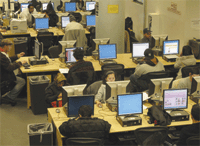 Community colleges can help foster entrepreneurship. They provide a great deal of training in business-related skills, such as information technology and accounting. They often offer programmes on how to start small businesses and can support such efforts as business incubators. These small businesses can be targeted at industries that will be initially supported through the stimulus package. For instance, small engineering and construction businesses can be created that specialise in retrofitting houses, apartments, or commercial buildings so that they use energy more efficiently (through better insulation and controls, and the like) and installing equipment, such as solar panels or windmills, that can actually generate energy locally. Or, the incubator could help start small businesses that specialise in software and business processes for medical offices and hospitals, to take advantage of the Obama administration's focus on increasing quality and efficiency in the health care sector through improved use of information technology.
Community colleges can help foster entrepreneurship. They provide a great deal of training in business-related skills, such as information technology and accounting. They often offer programmes on how to start small businesses and can support such efforts as business incubators. These small businesses can be targeted at industries that will be initially supported through the stimulus package. For instance, small engineering and construction businesses can be created that specialise in retrofitting houses, apartments, or commercial buildings so that they use energy more efficiently (through better insulation and controls, and the like) and installing equipment, such as solar panels or windmills, that can actually generate energy locally. Or, the incubator could help start small businesses that specialise in software and business processes for medical offices and hospitals, to take advantage of the Obama administration's focus on increasing quality and efficiency in the health care sector through improved use of information technology.
Some community colleges have developed innovative programmes for training these workers, such as the Washington State system's Integrated Basic Education
Increasing the Stock of Human Capital
Raising higher education completion rates is a longer term investment in workforce development in which community colleges play an important role. These rates are beginning to plateau and the U.S. is beginning to lose its historical edge in educational attainment. This trend needs to be reversed for the sake of international competitiveness and preserving the American standard of living, which, in terms of purchasing power parity, remains the highest in the world among the large economies. Many economists have estimated that the relatively high educational level of workers in the U.S. has been a factor essential to its past success.
Disadvantaged Workers
Disadvantaged workers are, in aggregate, most severely hurt by an economic downturn; community colleges can play a role in helping these workers upgrade their skills so that they are ready to move up in the labour market. There are many workers labouring at the bottom of the market, for relatively low wages. There has been a small increase in this segment of the labour force. Most of these workers have low levels of skills and education. Some are immigrants, and some are native-born workers who have managed to fall through the cracks of the education and training system. Some community colleges have developed innovative programs for training these workers, such as the Washington State system's Integrated Basic Education Skills Training Programme (I-BEST). This programme couples basic education with vocational training using a team-teaching approach and has a good track record in placing students in areas such as allied health, child care, or in entry-level administrative positions requiring some IT skills.
Helping this population upgrade its skills is a “win-win;” they earn higher wages, the economy benefits from their increased productivity, and they are less likely to rely on government assistance. In addition, firms may adjust their production strategies to make more use of higher-skilled workers as the composition of the labour force changes.
Looking Beyond the Crisis
In the current economic climate, community colleges need to be aware of students' long term career interests. Many displaced workers who go to community colleges seeking retraining will be concerned with their immediate employment needs. They will be grappling with the psychological impact of job loss; some may be angry and still dealing with issues related to losing their jobs; many will be desperate to find work. Employers are skeptical of workers simply seeking a paycheck, particularly in this environment where they can be very choosy in hiring workers. They will be looking for a genuine interest in a career from workers applying for a job.
Community colleges will play an important role in helping displaced workers readjust to their new reality and plan ahead for their future careers while also addressing issues from their recent displacement. Colleges need to be aware of their students' longer-term goals to make sure they select appropriate careers, and to encourage them, when appropriate, to pursue pathways with both short- and long-term opportunities. Overall, it is critical that we not take a quick-fix perspective but understand and draw on the important role community colleges can play in training, re-training, and providing higher education for a large part of our population on an ongoing basis.











 The ACTUniv group has emerged as a knowledge resource enterprise over the last two decades since its inception. The company is engaged in imparting Education and Training services in Information technology, English Language and content development. Its expertise rests in its people and technology; developing products and services for IT, Technology Specialisation, Course Content, Multimedia, Animation, Digital content and Language Learning Systems.
The ACTUniv group has emerged as a knowledge resource enterprise over the last two decades since its inception. The company is engaged in imparting Education and Training services in Information technology, English Language and content development. Its expertise rests in its people and technology; developing products and services for IT, Technology Specialisation, Course Content, Multimedia, Animation, Digital content and Language Learning Systems.
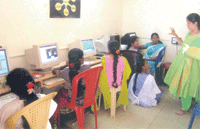 Indira Gandhi, former Prime Minister of India once said, “Education should inculcate a life-long habit of learning. And today, this is all the more necessary, because the corpus of knowledge is increasing at a tremendous pace.” Indira Gandhi National Open University (
Indira Gandhi, former Prime Minister of India once said, “Education should inculcate a life-long habit of learning. And today, this is all the more necessary, because the corpus of knowledge is increasing at a tremendous pace.” Indira Gandhi National Open University (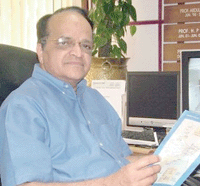 “The government plans to open more ‘Community Colleges’ across the country with focus on skill development during the Eleventh Plan Period, with an aim to generate skilled manpower for the labour market. Such colleges, providing an open-access admission policy, would also fulfill the mandate of the National Skill Mission and bring hopes to drop-outs, besides realising dreams of those who wish to complete higher studies. They would have provisions for vertical mobility and service as a community-based institution of higher education.
“The government plans to open more ‘Community Colleges’ across the country with focus on skill development during the Eleventh Plan Period, with an aim to generate skilled manpower for the labour market. Such colleges, providing an open-access admission policy, would also fulfill the mandate of the National Skill Mission and bring hopes to drop-outs, besides realising dreams of those who wish to complete higher studies. They would have provisions for vertical mobility and service as a community-based institution of higher education.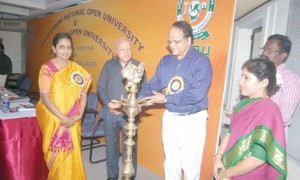 this initiative, which will go a long way in strengthening, among others, the Indian literacy
this initiative, which will go a long way in strengthening, among others, the Indian literacy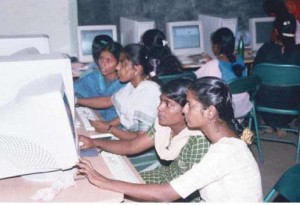

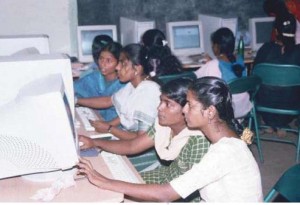 work for the economically under privileged in India. Tewes observed that the children in the hundreds of orphanages supported by Inter-mission and other India partners were bereft of skills that are required in the job market. A strategy was in order. With like-minded friends he started Inter-Mission
work for the economically under privileged in India. Tewes observed that the children in the hundreds of orphanages supported by Inter-mission and other India partners were bereft of skills that are required in the job market. A strategy was in order. With like-minded friends he started Inter-Mission  Community colleges can help foster entrepreneurship. They provide a great deal of training in business-related skills, such as information technology and accounting. They often offer programmes on how to start small businesses and can support such efforts as business incubators. These small businesses can be targeted at industries that will be initially supported through the stimulus package. For instance, small engineering and construction businesses can be created that specialise in retrofitting houses, apartments, or commercial buildings so that they use energy more efficiently (through better insulation and controls, and the like) and installing equipment, such as solar panels or windmills, that can actually generate energy locally. Or, the incubator could help start small businesses that specialise in software and business processes for medical offices and hospitals, to take advantage of the Obama administration's focus on increasing quality and efficiency in the health care sector through improved use of information technology.
Community colleges can help foster entrepreneurship. They provide a great deal of training in business-related skills, such as information technology and accounting. They often offer programmes on how to start small businesses and can support such efforts as business incubators. These small businesses can be targeted at industries that will be initially supported through the stimulus package. For instance, small engineering and construction businesses can be created that specialise in retrofitting houses, apartments, or commercial buildings so that they use energy more efficiently (through better insulation and controls, and the like) and installing equipment, such as solar panels or windmills, that can actually generate energy locally. Or, the incubator could help start small businesses that specialise in software and business processes for medical offices and hospitals, to take advantage of the Obama administration's focus on increasing quality and efficiency in the health care sector through improved use of information technology.









